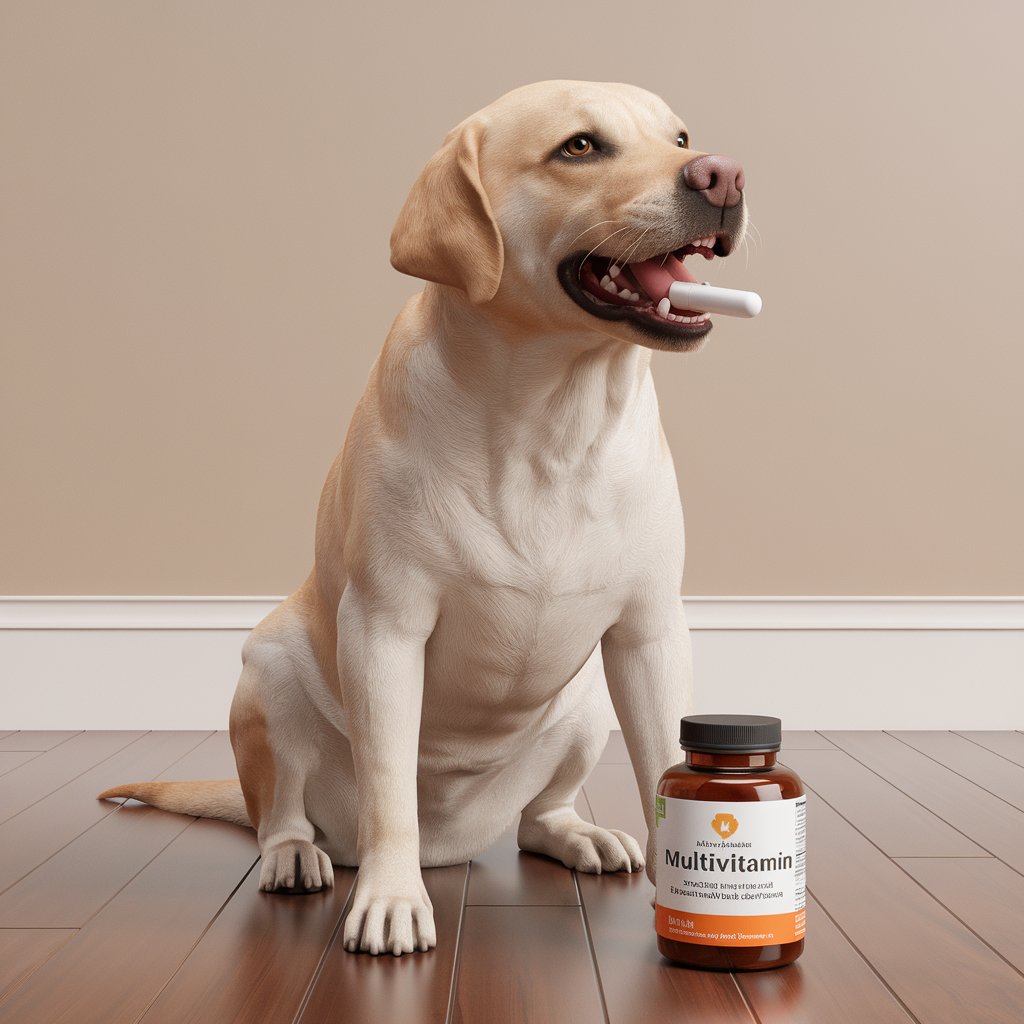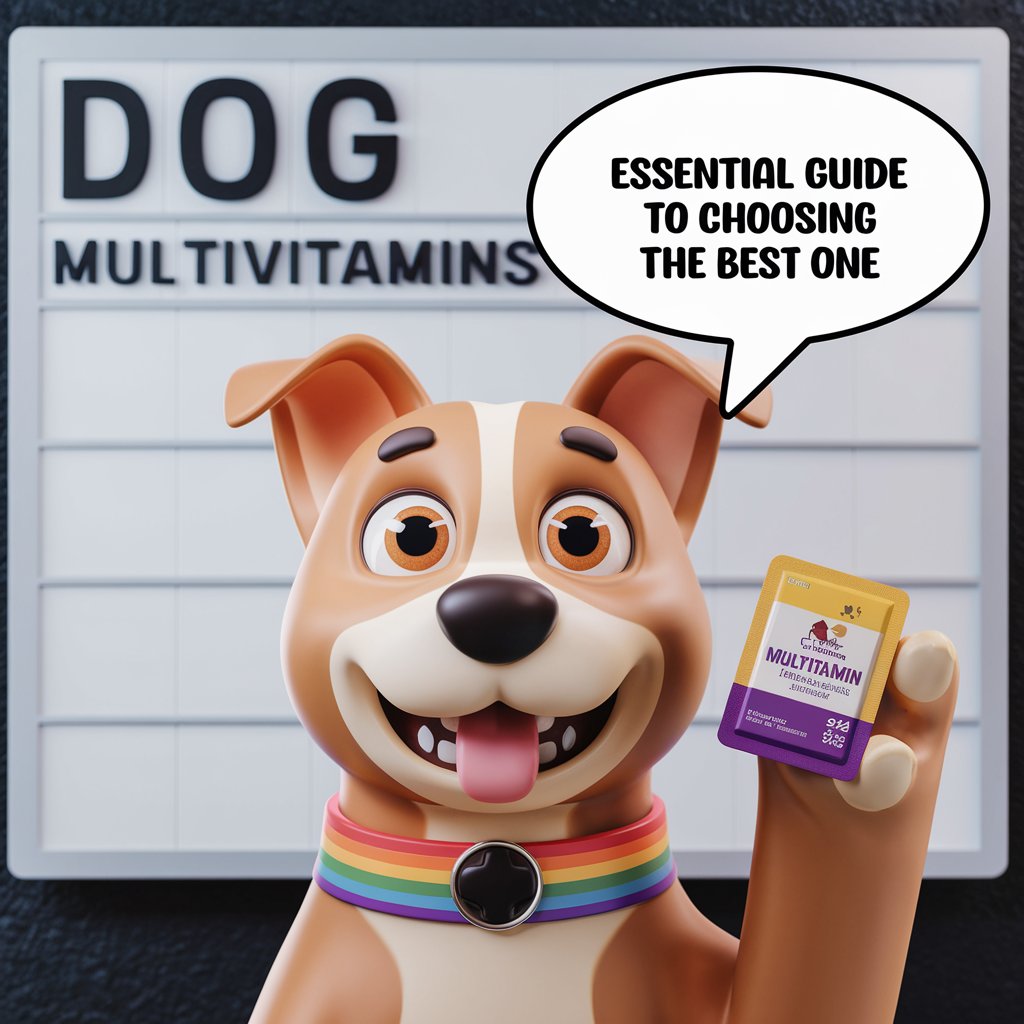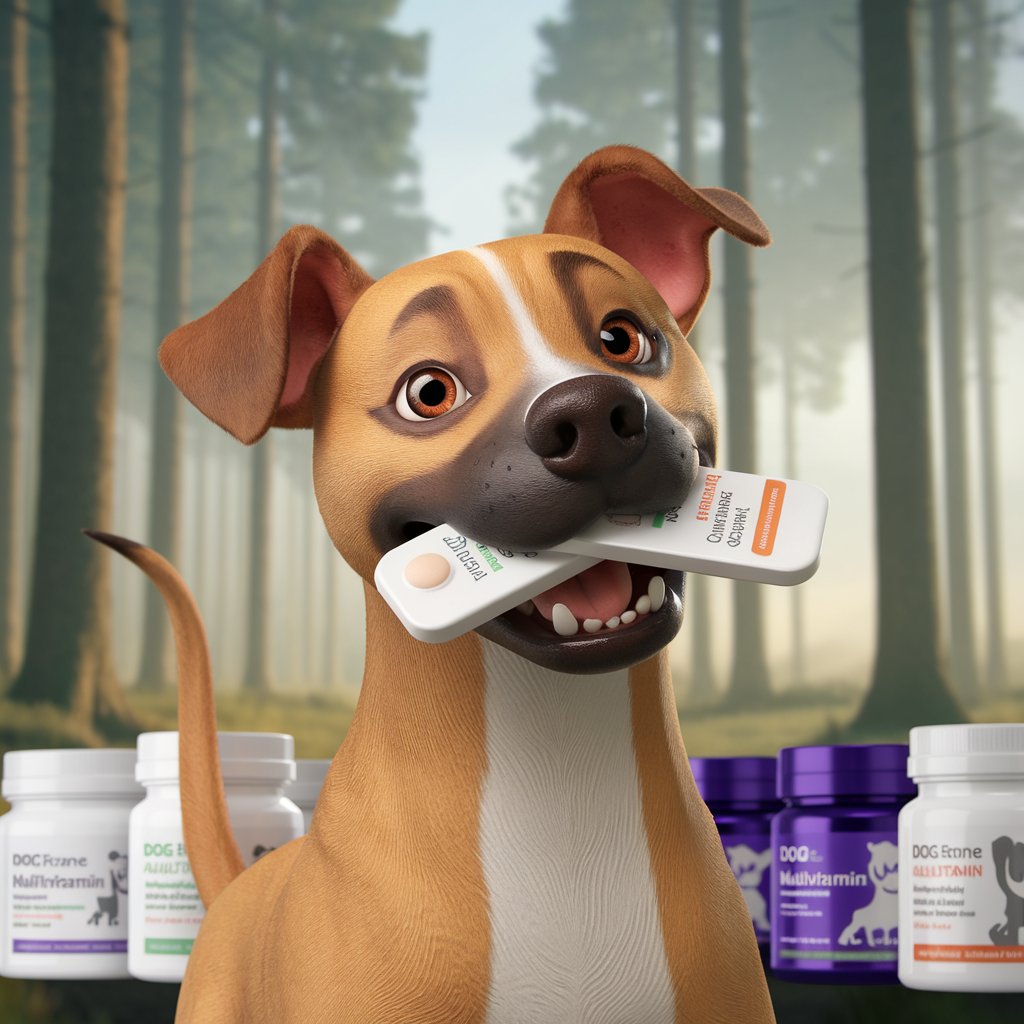Dog Multivitamins: Why They’re Important and How to Choose
Ah, the life of a dog owner! It’s a rollercoaster of wagging tails, slobbery kisses, and the occasional “What’s that in your mouth?!” moment. But amidst all the joy, there’s the responsibility of making sure our furry best friends are as healthy as can be. That’s where dog multivitamins come into play. Just like us, our canine companions sometimes need a little extra nutritional boost to keep them in tip-top shape.
In this article, we’re diving headfirst into the world of dog multivitamins. We’ll explore why they’re important, what benefits they bring to the doggy table, and how to choose the right one for your pet. And don’t worry, we’ll keep things light-hearted and fun—because who said dog care had to be all serious?
Why Dog Multivitamins Matter: The Basics
Let’s start with the basics. Why should you even consider giving your dog a multivitamin? Isn’t their kibble packed with everything they need? Well, not exactly.
Filling in the Gaps
While many commercial dog foods are formulated to meet the basic nutritional needs of dogs, they might not cover all the bases—especially if your dog has specific health concerns, is aging, or is particularly active. That’s where multivitamins come in. They fill in the gaps, ensuring your dog gets all the essential nutrients they might be missing.
Boosting Overall Health
Dog multivitamins can support various aspects of your dog’s health, from shiny coats and strong nails to improved joint health and better digestion. Think of them as an all-in-one health booster that helps keep your dog feeling their best, whether they’re chasing squirrels or snoozing on the couch.

The Benefits of Dog Multivitamins
Now that we know why dog multivitamins matter, let’s look at the specific benefits they offer. Spoiler alert: they’re pretty pawsome.
1. Shiny, Healthy Coats
Who doesn’t love a dog with a glossy coat? Omega fatty acids, often found in multivitamins, play a significant role in keeping your dog’s fur looking fabulous. If your dog’s coat is dull or dry, a multivitamin might be just what they need to get their shine back.
2. Stronger Joints and Bones
As dogs age, their joints and bones can become a little creaky (sound familiar?). Multivitamins containing glucosamine and chondroitin can help support joint health, keeping your pup active and playful well into their golden years.
3. Improved Digestion
Does your dog have a sensitive stomach? You’re not alone. Many multivitamins include digestive enzymes and probiotics that promote healthy digestion, making meal times a more pleasant experience for both you and your dog.
4. Enhanced Immune System
Just like humans, dogs can benefit from a little immune system boost. Vitamins like A, C, and E, commonly found in multivitamins, help support a strong immune system, which means fewer trips to the vet and more playtime at the park.
5. Better Heart Health
Keeping your dog’s heart healthy is crucial, especially as they age. Ingredients like taurine, often included in multivitamins, support cardiovascular health, ensuring your dog’s ticker keeps ticking for years to come.

Choosing the Right Multivitamin for Your Dog
Alright, now that you’re convinced your dog needs a multivitamin, how do you go about choosing the right one? With so many options out there, it can feel a bit overwhelming. But don’t fret—I’ve got you covered.
Consider Your Dog’s Age and Life Stage
Puppies, adults, and seniors all have different nutritional needs. Make sure the multivitamin you choose is appropriate for your dog’s age. For instance, puppies might need more calcium for bone development, while senior dogs could benefit from joint support.
Check the Ingredient List
Take a close look at the ingredients. You want a multivitamin with natural, high-quality ingredients. Avoid products with artificial colors, flavors, or unnecessary fillers. Remember, if you can’t pronounce it, your dog probably doesn’t need it.
Look for Specific Nutrients
Depending on your dog’s needs, you might want to look for specific nutrients. For example:
- For Joint Health: Glucosamine, chondroitin, and omega fatty acids.
- For Skin and Coat: Omega-3 and Omega-6 fatty acids, biotin, and vitamin E.
- For Immune Support: Vitamins A, C, and E, and antioxidants.
- For Heart Health: Taurine and L-carnitine.
Form Matters
Multivitamins come in various forms—chewables, liquids, powders, and tablets. Choose a form that’s easy to administer and that your dog will actually enjoy. After all, no one wants to wrestle a tablet down their dog’s throat every day.
Consult Your Vet
Before adding any supplement to your dog’s diet, it’s always a good idea to consult your vet. They can help you determine the right type and dosage based on your dog’s specific needs and health status.
Common Myths About Dog Multivitamins
Let’s take a moment to bust some myths. There’s a lot of misinformation out there about dog multivitamins, and we’re here to set the record straight.
Myth 1: “If my dog eats premium food, they don’t need a multivitamin.”
While premium dog food is great, it doesn’t always cover all the nutritional bases. Plus, individual dogs have unique needs that might require additional supplementation.
Myth 2: “Multivitamins are just a waste of money.”
Not true! When chosen and used correctly, multivitamins can significantly improve your dog’s quality of life and overall health. It’s an investment in your dog’s well-being.
Myth 3: “All multivitamins are the same.”
This couldn’t be further from the truth. Quality varies widely between brands, and the right multivitamin for your dog depends on their specific health needs.
How to Incorporate Multivitamins into Your Dog’s Routine
Now that you’ve chosen the perfect multivitamin, how do you make it a regular part of your dog’s routine? It’s easier than you think.
Make it a Treat
If your dog’s multivitamin comes in a tasty chewable form, you’re in luck. Treat it like a reward during training sessions or as part of their daily treat quota. Just be careful not to overdo it on treats—balance is key.
Add it to Their Food
For powders or liquids, simply mix the multivitamin into your dog’s food. Most dogs won’t even notice it’s there, especially if you stir it in well or add a bit of wet food to mask the taste.
Establish a Routine
Dogs thrive on routine. Choose a specific time each day to give your dog their multivitamin, whether it’s with breakfast, dinner, or during your evening cuddle session. Consistency will make it easier for both of you.

Popular Dog Multivitamins to Consider
With all this talk about multivitamins, you might be wondering where to start. Here are a few popular options available on Amazon that are highly rated by fellow dog owners:
- Zesty Paws Multivitamin Treats: A tasty option that covers joint, heart, and immune health.
- NaturVet All-in-One Supplement: Great for dogs of all ages, offering support for digestion, skin, and coat.
- Nutramax Cosequin DS Plus: Ideal for older dogs needing extra joint support.
- PetHonesty 10-for-1 Multivitamin: Packed with 10 benefits in one treat, including support for skin, coat, joints, and digestion.
Remember to check with your vet before starting any new supplement, and always follow the recommended dosage on the label.
Conclusion: The Power of Dog Multivitamins
Dog multivitamins might not be the first thing that comes to mind when you think of pet care, but they can make a world of difference in your dog’s health and happiness. By filling in nutritional gaps, supporting specific health needs, and boosting overall well-being, multivitamins can help your dog live their best life—full of energy, joy, and plenty of tail wags.
So, next time you’re cuddled up with your furry friend, give yourself a pat on the back for considering their nutritional needs. And maybe toss them a multivitamin while you’re at it—because who doesn’t love a healthy, happy pup?












Discussion about this post